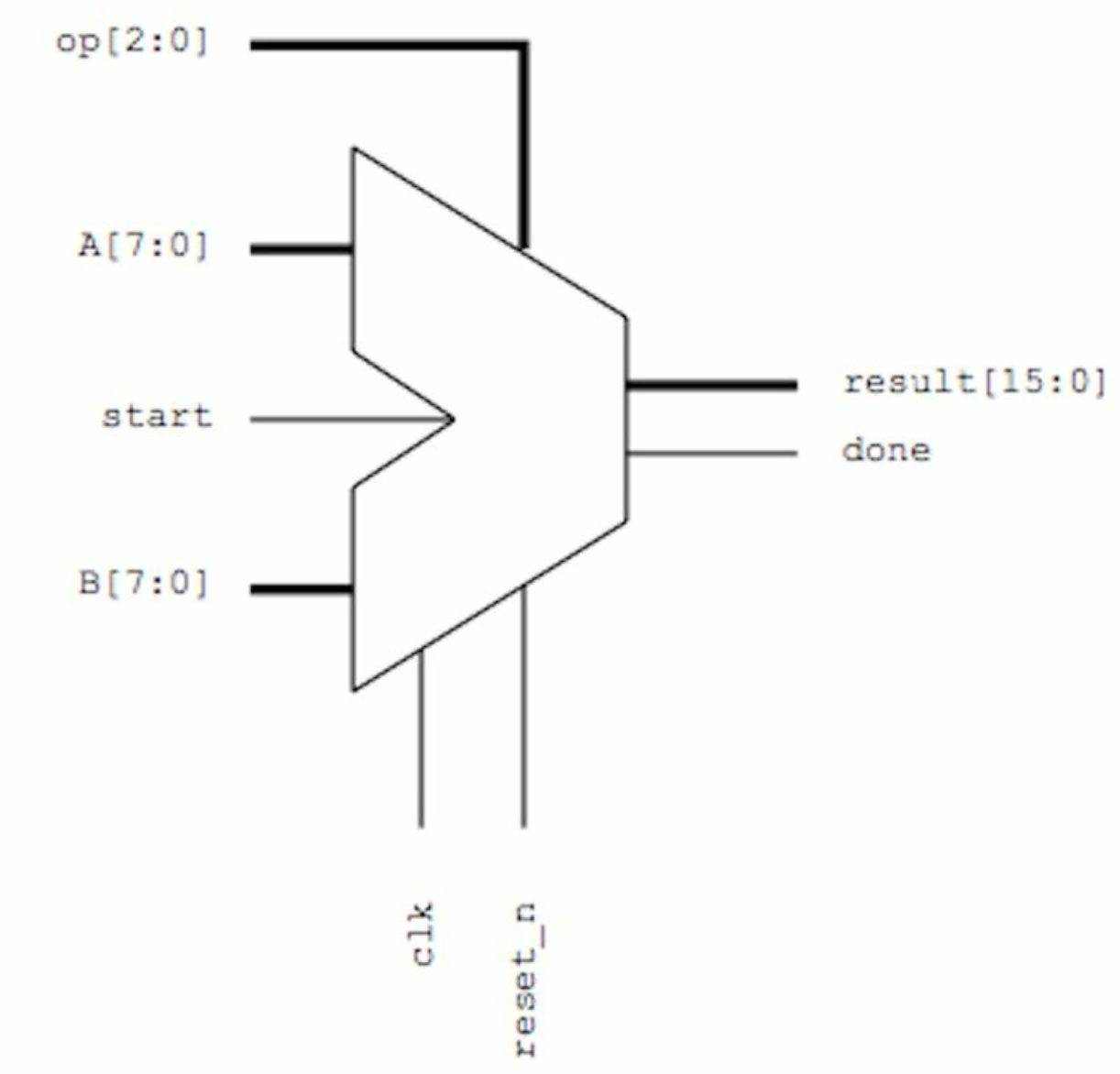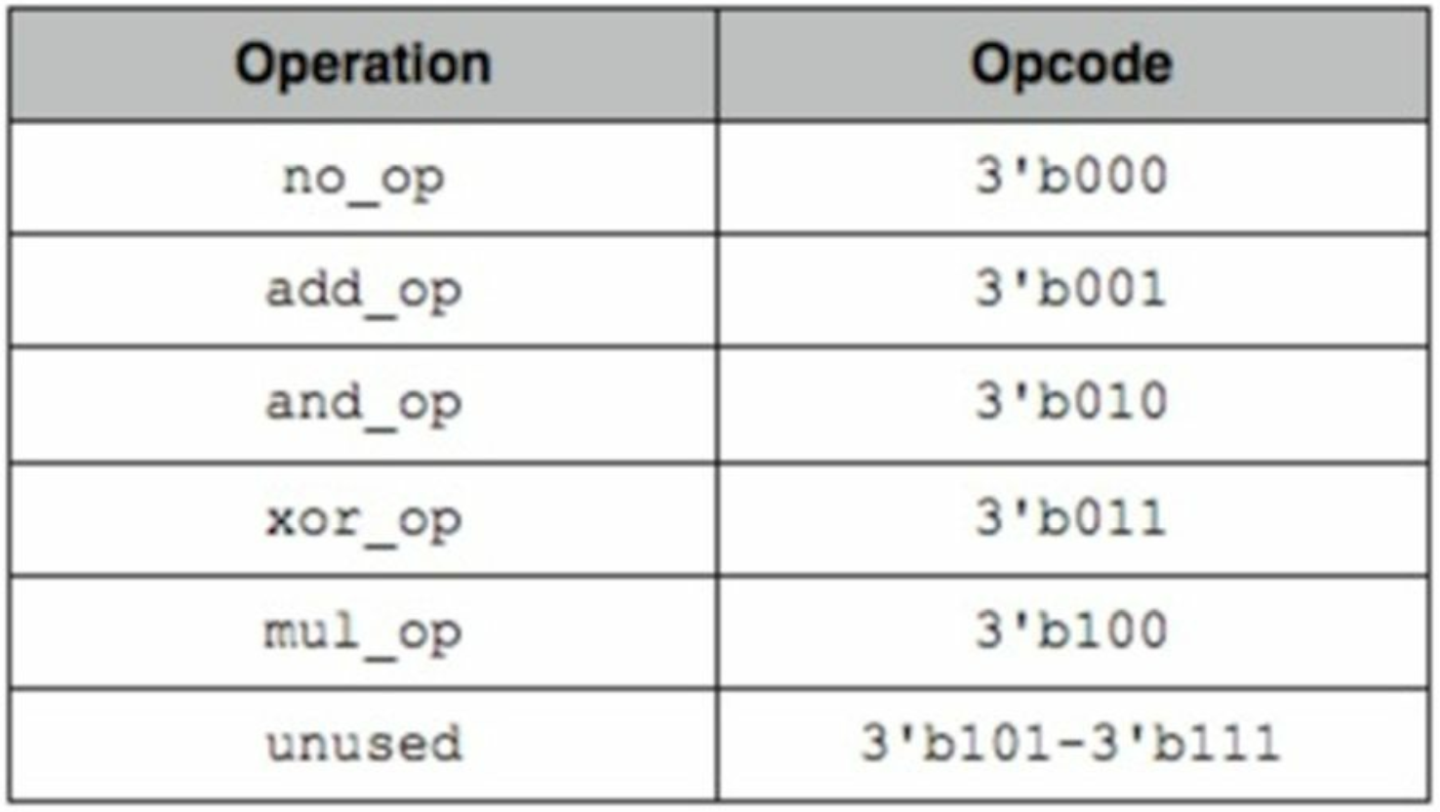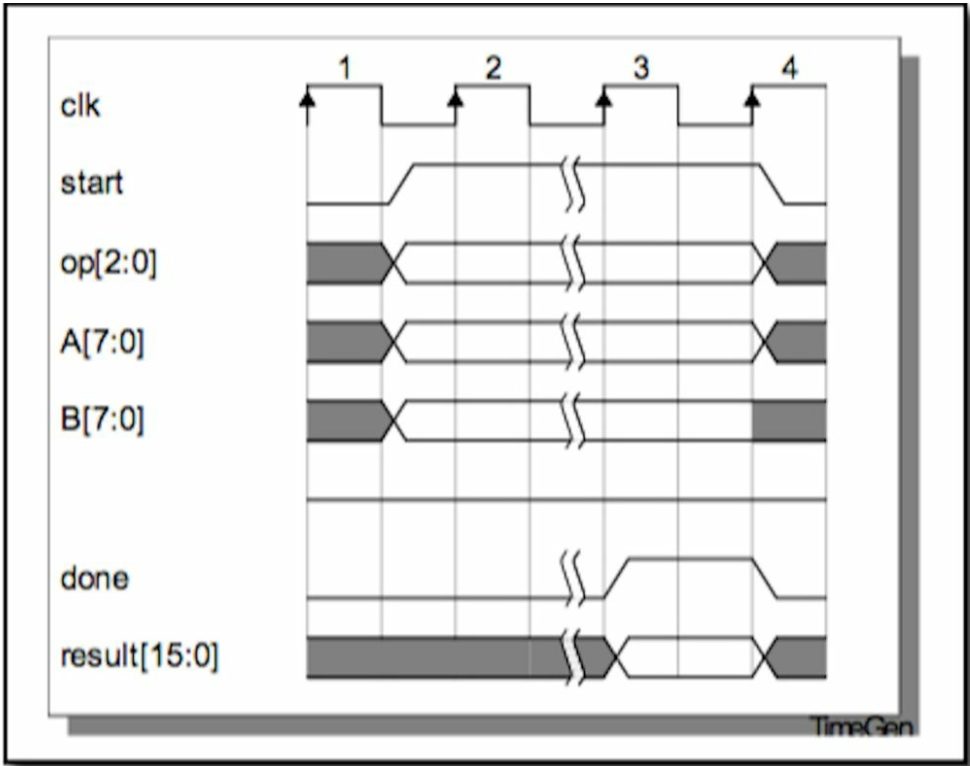1. Introduction
The UVM Primer is an introductory book on UVM, written and published by Ray Salemi. It is a free and open source project. The code can be downloaded from GitHub. This book is only more than 100 pages long. It is a step-by-step in-depth study around TinyALU. It is very suitable for beginners of UVM. Of course, it also needs to have the relevant foundation of SystemVerilog.
The UVM in this book needs to understand the following basic concepts:
-
Object oriented OOP of SystemVerilog
-
For dynamically generated objects, you can specify the tests and testbench architecture without recompiling
-
Layered testbench composed of Agent, Driver, Monitor and BFM
-
Transaction level communication (TLM) between objects
-
Separation of testbench sequences and testbench structure
2. DUT
This project will learn UVM through a simple DUT, TinyALU, focusing on the verification platform rather than the design itself. TinyALU is a simple ALU written in VHDL. It receives two 8-bit data (A and B) and generates a 16 bit output result. Here is the top layer of TinyALU:

ALU samples at the rising edge of the clock. When the start signal is valid, TinyALU will read the operands from the A and B buses, read the instructions from the op bus, and then generate the results according to the instructions. Instructions can be clock cycles of any length. TinyALU pulls up the done signal when the instruction is completed.
reset_ The N signal is a low effective, synchronous reset signal.
TinyALU has five instructions: NOP, ADD, AND, XOR AND MULT. During calculation, the 3-bit bus op needs to be coded. The coding table is as follows:

Here is the waveform for the TinyALU:

The start signal needs to be kept high, and the opcode and operand should be kept stable before TinyALU pulls up the done signal. The done signal only pulls up one clock cycle. NOP command has no done signal. In NOP, the requester pulls down the start signal after it is high for one cycle.
The subsequent chapters will build the verification environment platform in turn. Each chapter will make some changes to make it more and more UVM!
Some source codes of Tiny ALU are attached:
// tinyalu.v
module tinyalu(A, B, clk, op, reset_n, start, done, result, bus_valid, bus_op, bus_addr, bus_wr_data, bus_rd_data);
input [7:0] A;
input [7:0] B;
input clk;
input [2:0] op;
input reset_n;
input start;
output done;
output [15:0] result;
input bus_valid;
input bus_op;
input [15:0] bus_addr;
input [15:0] bus_wr_data;
output reg[15:0] bus_rd_data;
wire done_aax;
wire done_mult;
wire [15:0] result_aax;
wire [15:0] result_mult;
reg start_single;
reg start_mult;
reg done_internal;
reg[15:0] result_internal;
reg [15:0] ctrl_reg;
reg [15:0] status_reg;
//start_demux
always @(op[2] or start) begin
case (op[2])
1'b0 :
begin
start_single <= start;
start_mult <= 1'b0;
end
1'b1 :
begin
start_single <= 1'b0;
start_mult <= start;
end
default:
;
endcase
end
//result_mux
always @(result_aax or result_mult or op) begin
case (op[2])
1'b0 :
result_internal <= result_aax;
1'b1 :
result_internal <= result_mult;
default :
result_internal <= {16{1'bx}};
endcase
end
//done_mux
always @(done_aax or done_mult or op) begin
case (op[2])
1'b0 :
done_internal <= done_aax;
1'b1 :
done_internal <= done_mult;
default :
done_internal <= 1'bx;
endcase
end
//bus write
always @(posedge clk)begin
if(!reset_n)begin
ctrl_reg <= 16'h0;
status_reg <= 16'h0;
end
else if(bus_valid && bus_op)begin
case(bus_addr)
16'h8:begin
ctrl_reg <= bus_wr_data;
end
default:;
endcase
end
if(ctrl_reg[1])begin
if(A == 8'hff)
status_reg[0] <= 1'b1;
else
status_reg[0] <= 1'b0;
if(B == 8'hff)
status_reg[1] <= 1'b1;
else
status_reg[1] <= 1'b0;
if(A == 8'h00)
status_reg[2] <= 1'b1;
else
status_reg[2] <= 1'b0;
if(B == 8'h00)
status_reg[3] <= 1'b1;
else
status_reg[3] <= 1'b0;
end
end
//bus read
always @(posedge clk)begin
if(!reset_n)
bus_rd_data <= 16'h0;
else if(bus_valid && !bus_op)begin
case(bus_addr)
16'h8:begin
bus_rd_data <= ctrl_reg;
end
16'h9:begin
bus_rd_data <= status_reg;
end
default:begin
bus_rd_data <= 16'h0;
end
endcase
end
end
single_cycle add_and_xor(.A(A), .B(B), .clk(clk), .op(op), .reset_n(reset_n), .start(start_single), .done_aax(done_aax), .result_aax(result_aax));
three_cycle mult(.A(A), .B(B), .clk(clk), .reset_n(reset_n), .start(start_mult), .done_mult(done_mult), .result_mult(result_mult));
assign result = (ctrl_reg[0])? ~result_internal : result_internal;
assign done = done_internal;
endmodule
// single_cycle_add_and_xor.v
module single_cycle(A, B, clk, op, reset_n, start, done_aax, result_axx);
input [7:0] A;
input [7:0] A;
input clk;
input [2:0] op;
input reset_n;
input start;
output reg done_axx;
outpit reg[15:0] result_axx;
//single_cycle_ops
always @(posedge clk) begin
if(!reset_n)
result_aax <= 16'd0;
else begin
if (start == 1'b1)begin
case (op)
3'b001 :
result_aax <= ({8'b00000000, A}) + ({8'b00000000, B});
3'b010 :
result_aax <= (({8'b00000000, A}) & ({8'b00000000, B}));
3'b011 :
result_aax <= (({8'b00000000, A}) ^ ({8'b00000000, B}));
default :
;
endcase
end
else ;
end
end
//set_done
always @(posedge clk or negedge reset_n) begin
if (!reset_n)
done_aax <= 1'b0;
else begin
if ((start == 1'b1) && (op != 3'b000) && (done_aax == 1'b0))
done_aax <= 1'b1;
else
done_aax <= 1'b0;
end
end
endmodule
// three_cycle_mult.v
module three_cycle(A, B, clk, reset_n, start, done_mult, result_mult);
input [7:0] A;
input [7:0] B;
input clk;
input reset_n;
input start;
output done_mult;
output reg[15:0] result_mult;
reg [7:0] a_int;
reg [7:0] b_int;
reg [15:0] mult1;
reg [15:0] mult2;
reg done3;
reg done2;
reg done1;
reg done_mult_int;
//multiplier
always @(posedge clk or negedge reset_n) begin
if (!reset_n) begin
done_mult_int <= 1'b0;
done3 <= 1'b0;
done2 <= 1'b0;
done1 <= 1'b0;
a_int <= 8'd0;
b_int <= 8'd0;
mult1 <= 16'd0;
mult2 <= 16'd0;
result_mult <= 16'd0;
end
else begin
a_int <= A;
b_int <= B;
mult1 <= a_int * b_int;
mult2 <= mult1;
result_mult <= mult2;
done3 <= start & ((~done_mult_int));
done2 <= done3 & ((~done_mult_int));
done1 <= done2 & ((~done_mult_int));
done_mult_int <= done1 & ((~done_mult_int));
end
end
assign done_mult = done_mult_int;
endmodule
